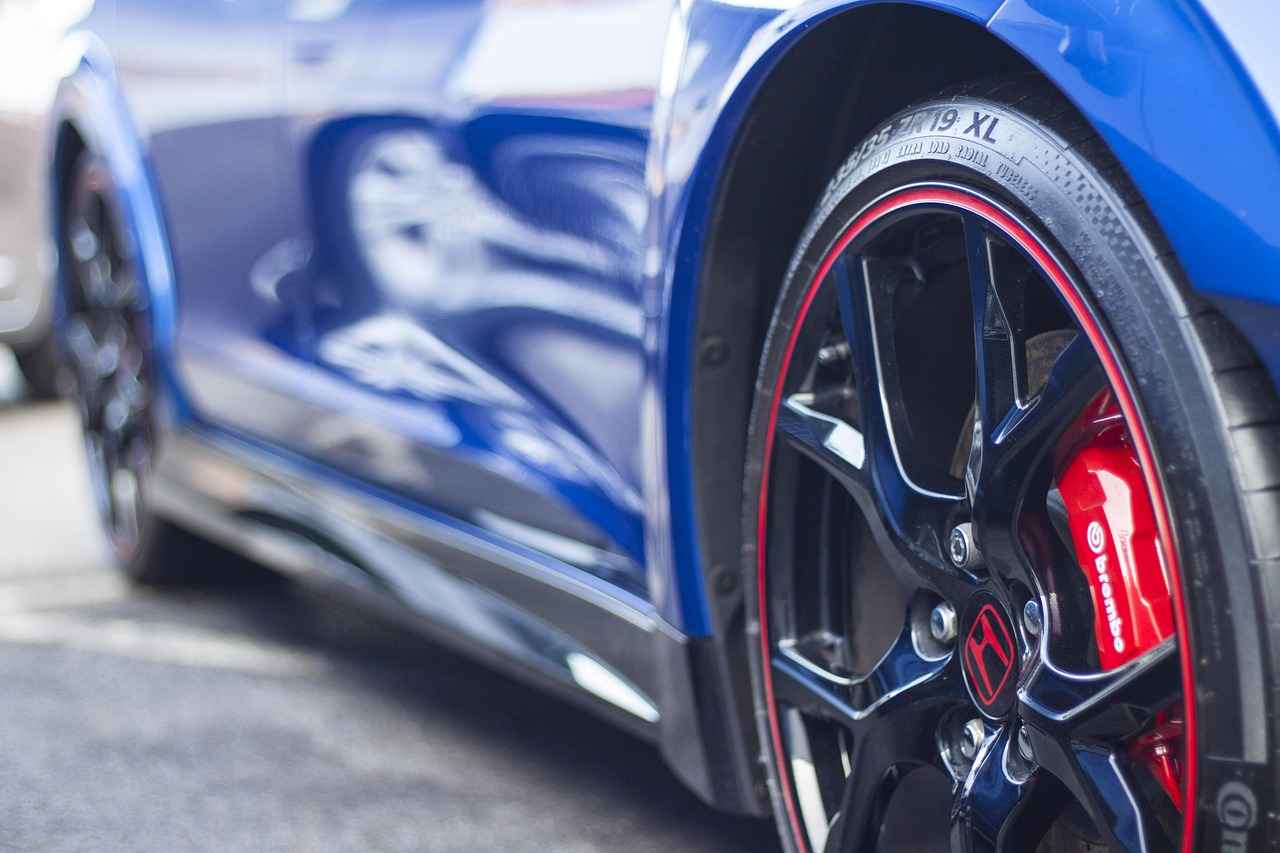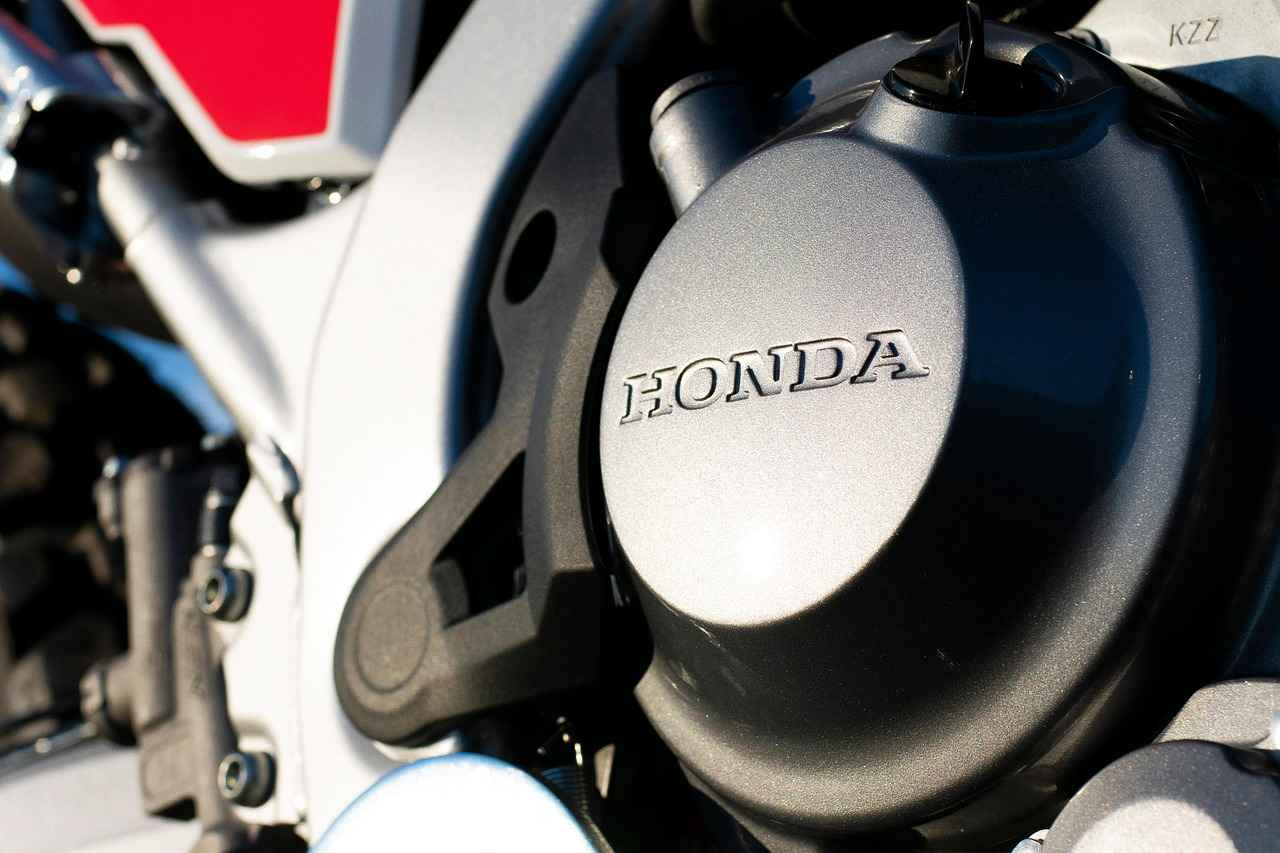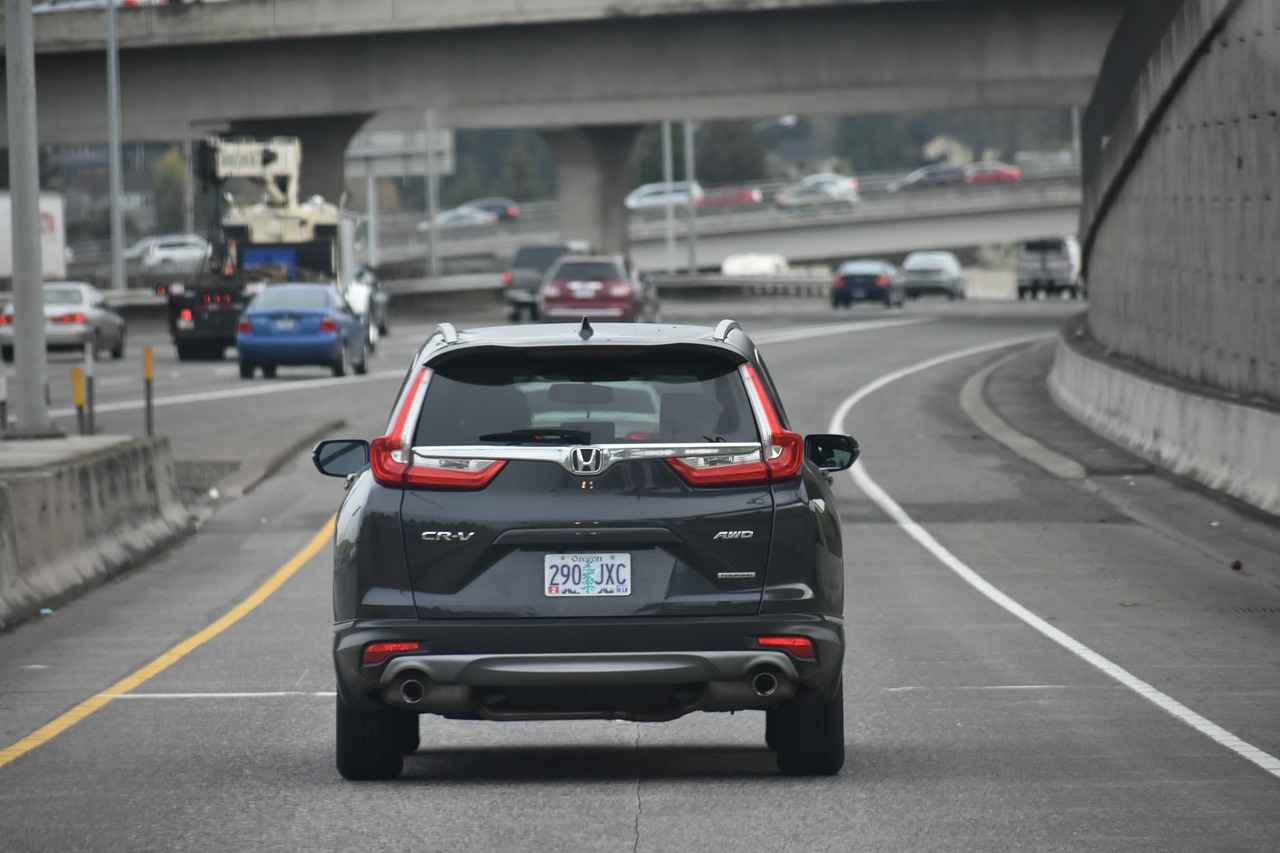This article examines the Honda Civic Hybrid, a vehicle that has garnered attention among eco-conscious drivers. By analyzing its performance, efficiency, cost, and environmental impact, we aim to provide a comprehensive overview of this popular hybrid car.
What is the Honda Civic Hybrid?
The Honda Civic Hybrid is a compact car that integrates a gasoline engine with an electric motor. This combination is engineered to enhance fuel efficiency while simultaneously reducing harmful emissions. Understanding the vehicle’s features is crucial for potential buyers who prioritize sustainability.
Key Features of the Honda Civic Hybrid
- Advanced Technology: The Civic Hybrid is equipped with modern tech that enhances driving comfort and safety.
- Regenerative Braking: This feature captures energy during braking, improving overall efficiency.
- Comfortable Interior: The cabin offers a spacious and comfortable environment for both drivers and passengers.
Fuel Efficiency Ratings
One of the most appealing aspects of the Honda Civic Hybrid is its exceptional fuel efficiency. Typically, it achieves around 48 MPG combined, making it a standout compared to traditional gasoline vehicles.
City vs. Highway Mileage
Understanding the differences between city and highway mileage is essential for potential owners. In urban settings, the Civic Hybrid excels with an estimated 44 MPG, while on highways, it can reach up to 49 MPG.
Real-World Performance
While manufacturers provide estimates, real-world performance may vary. Many owners report positive experiences, highlighting the vehicle’s reliability and efficiency in everyday driving scenarios.
Environmental Impact of the Honda Civic Hybrid
The Honda Civic Hybrid is designed to minimize its environmental footprint. With lower emissions compared to conventional vehicles, it contributes to a more sustainable future by reducing air pollution.
Cost Analysis: Is It Worth It?
Investing in a hybrid often entails a higher upfront cost. However, the long-term savings on fuel and maintenance can offset this initial expense, making it a worthwhile investment for many.
Initial Purchase Price
The starting price of the Honda Civic Hybrid can deter some buyers. Pricing varies by model and features, with base models starting around $24,000.
Long-Term Savings on Fuel
Despite the higher purchase price, the savings on fuel can be substantial. For an average driver, the savings over several years can amount to thousands of dollars.
Pros of the Honda Civic Hybrid
- Fuel Efficiency: Exceptional MPG ratings make it a cost-effective choice for daily commutes.
- Reduced Emissions: Lower environmental impact compared to traditional gasoline vehicles.
- Advanced Safety Features: Equipped with modern safety technology, enhancing driver and passenger protection.
Cons of the Honda Civic Hybrid
- Performance Limitations: Some drivers may find that hybrid vehicles can lag in acceleration compared to traditional cars.
- Battery Replacement Costs: The cost of replacing the hybrid battery can be significant, with prices potentially exceeding $3,000.

What is the Honda Civic Hybrid?
The Honda Civic Hybrid is a cutting-edge compact vehicle that seamlessly integrates a traditional gasoline engine with an electric motor. This innovative combination is specifically engineered to enhance fuel efficiency while significantly reducing harmful emissions. For potential buyers, understanding the unique features and functionalities of the Honda Civic Hybrid is crucial in making an informed decision.
As a part of Honda’s commitment to sustainability, the Civic Hybrid offers an eco-friendly alternative to conventional vehicles. Its hybrid technology not only helps in conserving fuel but also plays a vital role in lowering the carbon footprint of drivers. This makes it an attractive option for those who are environmentally conscious.
One of the most notable aspects of the Honda Civic Hybrid is its ability to switch between the gasoline engine and electric motor, depending on driving conditions. This feature ensures optimal performance and efficiency, allowing the vehicle to adapt to various driving scenarios. For instance, during city driving, the electric motor often takes precedence, resulting in lower fuel consumption.
The interior of the Honda Civic Hybrid is designed with both comfort and technology in mind. It includes features such as a user-friendly infotainment system, spacious seating, and high-quality materials, making it a pleasant environment for both drivers and passengers. Additionally, the vehicle is equipped with advanced safety features, which enhance overall driving confidence.
In summary, the Honda Civic Hybrid stands out in the compact car segment due to its impressive blend of performance, efficiency, and eco-friendliness. Potential buyers should consider these attributes carefully to assess whether this hybrid vehicle aligns with their lifestyle and values.

Key Features of the Honda Civic Hybrid
The Honda Civic Hybrid has garnered attention for its impressive blend of features that cater to environmentally conscious consumers. As the world shifts towards sustainable transportation, the Civic Hybrid stands out with its innovative technology and user-friendly design.
- Advanced Technology: The vehicle integrates cutting-edge technology to enhance both performance and convenience. Features such as a touchscreen infotainment system, smartphone connectivity, and navigation options keep drivers informed and entertained.
- Regenerative Braking: This system captures energy typically lost during braking and redirects it to recharge the battery. This not only improves fuel efficiency but also contributes to a more eco-friendly driving experience.
- Comfortable Interior: The Civic Hybrid is designed with passenger comfort in mind. Spacious seating, high-quality materials, and a quiet cabin create an inviting atmosphere for both short commutes and long journeys.
- Safety Features: The vehicle is equipped with numerous safety technologies, including adaptive cruise control, lane-keeping assist, and collision mitigation braking. These features enhance driver confidence and contribute to overall road safety.
- Fuel Efficiency: One of the most appealing aspects of the Civic Hybrid is its exceptional fuel economy. With impressive MPG ratings, it allows drivers to travel further on less fuel, which is both cost-effective and environmentally friendly.
These elements not only enhance the driving experience but also solidify the Civic Hybrid’s reputation as a reliable hybrid vehicle. As consumers increasingly prioritize sustainability, the Honda Civic Hybrid continues to be a top choice for those looking to make a positive impact on the environment without sacrificing comfort or performance.
Fuel Efficiency Ratings
The Honda Civic Hybrid has become a beacon of efficiency in the automotive world, especially for those seeking to reduce their carbon footprint without sacrificing performance. One of its most remarkable attributes is its fuel efficiency, which is a critical factor for many potential buyers.
When it comes to fuel economy, the Honda Civic Hybrid boasts impressive Miles Per Gallon (MPG) ratings that stand out in comparison to traditional gasoline vehicles. The Civic Hybrid typically achieves an estimated 48 MPG in the city and 47 MPG on the highway. This efficiency is largely due to its innovative hybrid technology, which combines a gasoline engine with an electric motor to optimize fuel consumption.
In contrast, many standard gasoline vehicles average around 25 to 30 MPG. This stark difference not only highlights the Civic Hybrid’s efficiency but also underscores the potential savings at the pump. For drivers who spend considerable time in urban settings, the enhanced city mileage can lead to significant reductions in fuel costs over time.
Understanding the distinction between city and highway mileage is essential for prospective owners. The Civic Hybrid excels in stop-and-go traffic, where its electric motor can take over, conserving fuel. On the highway, while the efficiency is slightly lower, it still outperforms many conventional vehicles, making it a versatile choice for various driving conditions.
While manufacturers provide official MPG ratings, real-world performance often varies. Many owners report achieving fuel economy figures that meet or even exceed the estimates, especially with careful driving habits. Online forums and reviews highlight experiences where drivers consistently see 45 MPG or better, reinforcing the Civic Hybrid’s reputation for reliability and efficiency.
Ultimately, the Honda Civic Hybrid not only delivers excellent fuel efficiency but also contributes to a more sustainable driving experience, making it a compelling option for eco-conscious consumers.
City vs. Highway Mileage
When considering the purchase of a hybrid vehicle like the Honda Civic Hybrid, understanding the nuances of city and highway mileage is essential for potential owners. These two metrics can significantly affect your overall driving experience and fuel costs.
City mileage refers to the fuel efficiency of a vehicle when driving in urban settings, characterized by frequent stops, traffic signals, and slower speeds. In contrast, highway mileage is measured during continuous driving on open roads, where vehicles can maintain higher speeds with fewer interruptions. The Honda Civic Hybrid is designed to excel in both environments, but there are inherent differences in performance.
| Driving Conditions | City Mileage (MPG) | Highway Mileage (MPG) |
|---|---|---|
| Honda Civic Hybrid | Approximately 48 MPG | Approximately 47 MPG |
The city mileage can often be higher in hybrid vehicles due to their ability to utilize the electric motor at lower speeds, which helps conserve fuel. However, highway mileage tends to be slightly lower because hybrid systems may not engage the electric motor as frequently when cruising at steady speeds. This difference is crucial for potential buyers to consider based on their typical driving habits.
Moreover, understanding these metrics enables owners to make informed decisions regarding fuel costs and environmental impact. For instance, if you primarily drive in urban areas, the city mileage rating will be more relevant to your overall fuel efficiency. On the other hand, frequent highway travelers should focus on the highway mileage to gauge their potential fuel expenses.
In summary, grasping the differences between city and highway mileage is vital for prospective Honda Civic Hybrid owners. By evaluating your driving patterns, you can better assess how this vehicle aligns with your needs and expectations.
Real-World Performance
The Honda Civic Hybrid has garnered significant attention for its fuel efficiency and eco-friendly design. However, while manufacturers provide estimates of fuel performance, real-world experiences can differ substantially. Understanding how the vehicle performs in everyday situations is crucial for potential buyers. This section will delve into owner testimonials and reviews, shedding light on the actual fuel efficiency that drivers experience.
Many owners have reported that their Civic Hybrid often exceeds the estimated fuel economy in certain driving conditions. For example, a common sentiment among drivers is that during highway travel, they frequently achieve miles per gallon (MPG) figures that surpass the official ratings. This is particularly true for those who engage in conservative driving habits, such as maintaining steady speeds and avoiding rapid acceleration.
In contrast, urban driving presents its challenges. City dwellers have noted that while the hybrid system is designed to optimize fuel efficiency in stop-and-go traffic, actual mileage can vary based on factors like traffic congestion and driving style. Some users have reported MPG figures that are lower than the manufacturer’s estimates, especially in heavy traffic scenarios.
| Driving Condition | Owner Reported MPG | Manufacturer Estimated MPG |
|---|---|---|
| Highway | 45-50 | 42 |
| City | 35-40 | 40 |
Additionally, many reviews emphasize the importance of regular maintenance and driving habits in achieving optimal fuel efficiency. Owners who adhere to recommended service schedules and utilize eco-driving techniques report better overall performance. This highlights the fact that while the Honda Civic Hybrid is engineered for efficiency, real-world outcomes are influenced by various external factors.
In summary, the real-world performance of the Honda Civic Hybrid can vary widely based on driving conditions and individual habits. By analyzing owner testimonials and reviews, potential buyers can gain valuable insights into what they might realistically expect from their investment.
Environmental Impact of the Honda Civic Hybrid
The Honda Civic Hybrid stands as a testament to modern automotive engineering, prioritizing both performance and environmental sustainability. This vehicle is specifically designed to minimize its carbon footprint, making it an attractive option for eco-conscious consumers. In this section, we will delve into the emissions produced by the Civic Hybrid and explore how it contributes to a more sustainable future.
One of the most significant advantages of the Honda Civic Hybrid is its low emissions. By combining a gasoline engine with an electric motor, this hybrid vehicle effectively reduces the amount of harmful pollutants released into the atmosphere. Compared to traditional gasoline vehicles, the Civic Hybrid emits significantly fewer greenhouse gases, which is crucial in the fight against climate change.
| Emission Type | Honda Civic Hybrid | Traditional Gasoline Vehicle |
|---|---|---|
| CO2 Emissions (g/km) | 80 | 140 |
| NOx Emissions (g/km) | 0.02 | 0.06 |
| Particulate Matter (g/km) | 0.001 | 0.005 |
Moreover, the Honda Civic Hybrid employs regenerative braking, a technology that captures energy typically lost during braking and redirects it to recharge the battery. This not only enhances fuel efficiency but also reduces wear on the brake system, contributing to a longer lifespan for vehicle components.
In addition to its low emissions, the Civic Hybrid plays a crucial role in promoting a sustainable future through its fuel efficiency. With impressive mileage ratings, drivers can enjoy significant savings on fuel costs while simultaneously reducing their environmental impact. This dual benefit positions the Honda Civic Hybrid as a practical choice for those looking to make a positive difference.
In conclusion, the Honda Civic Hybrid is more than just a vehicle; it is a step towards a greener planet. By minimizing emissions and enhancing fuel efficiency, it exemplifies how modern technology can align with environmental responsibility.

Cost Analysis: Is It Worth It?
When considering the Honda Civic Hybrid, potential buyers often weigh the initial costs against long-term savings. While the upfront price of hybrid vehicles can be significantly higher than that of conventional cars, it’s essential to analyze the financial implications over time.
The initial purchase price of the Honda Civic Hybrid typically reflects its advanced technology and eco-friendly features. Buyers should expect to pay a premium, which can range from $24,000 to $30,000, depending on the model and included features. However, this investment can lead to substantial savings in fuel costs. The Honda Civic Hybrid is known for its impressive fuel efficiency, averaging around 48 miles per gallon in combined driving conditions, compared to the 32 miles per gallon of a traditional gasoline-powered Civic.
To illustrate the long-term savings, consider a driver who travels approximately 15,000 miles annually. If gasoline costs an average of $3.50 per gallon, the traditional Civic would require around 468 gallons of fuel each year, costing about $1,638. In contrast, the Civic Hybrid would only need around 313 gallons, translating to an annual fuel expense of about $1,095. This results in an annual savings of approximately $543.
| Vehicle Type | Annual Mileage | Fuel Efficiency (MPG) | Annual Fuel Cost | Annual Savings |
|---|---|---|---|---|
| Honda Civic (Gas) | 15,000 | 32 | $1,638 | – |
| Honda Civic Hybrid | 15,000 | 48 | $1,095 | $543 |
Over a five-year period, these savings can accumulate to around $2,715. Although the initial cost may seem daunting, the Honda Civic Hybrid can offer significant savings on fuel, making it a smart choice for environmentally conscious drivers looking to save money in the long run.
Initial Purchase Price
The of the Honda Civic Hybrid can indeed be a significant factor for potential buyers. With a starting price that often exceeds that of traditional gasoline vehicles, it’s essential to analyze the pricing tiers and the features associated with each model.
Typically, the Honda Civic Hybrid is available in several trims, each offering a unique blend of features and technology. The base model is designed to provide essential hybrid capabilities, while higher trims include advanced features that cater to tech-savvy consumers.
| Trim Level | Starting Price | Key Features |
|---|---|---|
| Base Model | $25,000 | Standard hybrid technology, basic infotainment system, and safety features. |
| Mid-Level Model | $28,000 | Enhanced audio system, larger touchscreen, and additional safety features. |
| Top-Level Model | $32,000 | Luxury interior, advanced navigation, and premium safety technology. |
While the initial cost may seem daunting, it is important to consider the value these features bring. For instance, the advanced safety features in higher trims can provide peace of mind, potentially reducing insurance costs over time. Moreover, the fuel efficiency of the hybrid system means that owners can save significantly on gas, making the vehicle more economical in the long run.
Additionally, many buyers may qualify for government incentives or tax credits for purchasing a hybrid vehicle, which can help offset the initial purchase price. This financial assistance can make the Honda Civic Hybrid a more attractive option for eco-conscious consumers looking to invest in a sustainable vehicle.
In summary, while the initial purchase price of the Honda Civic Hybrid may deter some buyers, understanding the features and potential long-term savings can help in making a more informed decision.
Long-Term Savings on Fuel
When considering the purchase of a Honda Civic Hybrid, one of the most compelling factors is the potential for . While the initial purchase price may be higher than that of traditional gasoline vehicles, the savings accrued over time can be substantial, particularly for those with average driving habits.
To understand the financial benefits, let’s first examine the average fuel economy of the Honda Civic Hybrid. Typically, this vehicle achieves around 48 miles per gallon (MPG) in city driving and approximately 47 MPG on the highway. In contrast, a conventional gasoline vehicle may average around 25 MPG in similar conditions.
| Driving Conditions | Honda Civic Hybrid (MPG) | Conventional Vehicle (MPG) |
|---|---|---|
| City | 48 | 25 |
| Highway | 47 | 25 |
Assuming an average driver covers about 15,000 miles per year, we can calculate the annual fuel costs for both vehicles. With gas prices averaging around $3.50 per gallon, the calculations would be as follows:
- Honda Civic Hybrid: Annual Fuel Consumption 15,000 miles / 48 MPG 312.5 gallons Annual Fuel Cost 312.5 gallons * $3.50 $1,093.75- Conventional Vehicle: Annual Fuel Consumption 15,000 miles / 25 MPG 600 gallons Annual Fuel Cost 600 gallons * $3.50 $2,100.00
From these calculations, it’s evident that the Honda Civic Hybrid offers significant savings on fuel. Over the course of a year, a driver could save approximately $1,006.25 by choosing the hybrid model over a conventional vehicle. Over a span of five years, these savings can accumulate to more than $5,000, not accounting for potential increases in fuel prices.
In summary, while the Honda Civic Hybrid has a higher upfront cost, the long-term savings on fuel can make it a financially wise choice for many drivers. By evaluating your driving habits and fuel costs, you can determine whether investing in a hybrid vehicle aligns with your economic goals.

Pros of the Honda Civic Hybrid
The Honda Civic Hybrid has gained popularity among environmentally conscious drivers, and for good reason. This section will delve into the numerous advantages of owning this remarkable vehicle, emphasizing its fuel efficiency, reduced emissions, and advanced technology features.
- Exceptional Fuel Efficiency: One of the most significant benefits of the Honda Civic Hybrid is its outstanding fuel efficiency. With an impressive miles per gallon (MPG) rating, it allows drivers to travel further on less fuel, making it a cost-effective choice for daily commuting and long trips alike.
- Lower Emissions: The Honda Civic Hybrid is designed to produce fewer harmful emissions compared to traditional gasoline vehicles. This not only helps in reducing the carbon footprint but also contributes to a cleaner and healthier environment for all.
- Advanced Technology Features: The Civic Hybrid is equipped with cutting-edge technology, including a regenerative braking system that captures energy during braking and uses it to recharge the battery. Additionally, features like a user-friendly infotainment system and advanced safety technologies enhance the overall driving experience.
- Comfort and Space: Despite being a compact car, the Honda Civic Hybrid offers a surprisingly spacious interior. With comfortable seating and ample cargo space, it caters to the needs of families and individuals alike.
- Reliability and Resale Value: Honda vehicles are known for their reliability, and the Civic Hybrid is no exception. Its reputation for durability often leads to higher resale values, making it a wise investment for future owners.
In summary, the Honda Civic Hybrid stands out as a strong contender in the hybrid market, offering numerous benefits that cater to both the eco-conscious consumer and the practical driver. Its blend of efficiency, technology, and comfort makes it a compelling choice for anyone considering a hybrid vehicle.
Technology and Safety Features
The Honda Civic Hybrid stands out not only for its fuel efficiency but also for its impressive array of technology and safety features. These enhancements significantly contribute to an overall better driving experience, making it a compelling choice for modern drivers.
- Advanced Infotainment System: The Civic Hybrid comes equipped with a state-of-the-art infotainment system that includes a touchscreen display, smartphone integration, and navigation capabilities. This allows drivers to stay connected while on the road.
- Driver Assistance Technologies: Safety is paramount in the Civic Hybrid. It features a suite of driver assistance technologies such as adaptive cruise control, lane-keeping assist, and collision mitigation braking. These systems work together to enhance safety and reduce the likelihood of accidents.
- Regenerative Braking: This innovative feature captures energy typically lost during braking and redirects it to recharge the battery. This not only improves efficiency but also extends the life of the vehicle’s braking system.
- High-Quality Interior Materials: The interior of the Civic Hybrid is designed for comfort and style, featuring high-quality materials and ergonomic seating. This attention to detail enhances the overall driving experience, making long journeys more enjoyable.
- Connectivity Options: With Bluetooth, USB ports, and available Wi-Fi hotspot capability, the Civic Hybrid ensures that passengers can stay connected, whether for work or leisure.
Moreover, the Civic Hybrid’s commitment to safety is reflected in its high crash test ratings, providing peace of mind for both drivers and passengers. The integration of these modern technologies not only elevates the driving experience but also aligns with the growing demand for sustainable and safe vehicles.
In summary, the Honda Civic Hybrid’s combination of advanced technology and robust safety features makes it a standout option for those looking to embrace eco-friendly driving without compromising on comfort or security.
Resale Value and Reliability
The Honda Civic Hybrid has gained a reputation not only for its fuel efficiency and environmental benefits but also for its impressive resale value. As the demand for hybrid vehicles continues to rise, the Civic Hybrid stands out in the used car market, making it an attractive option for both buyers and sellers.
One of the primary factors contributing to its strong resale value is the vehicle’s reliability. Honda has consistently ranked high in dependability, and the Civic Hybrid is no exception. Many owners report minimal issues with their vehicles even after several years of use, which enhances buyer confidence in the used car market.
When analyzing the resale performance of the Honda Civic Hybrid, it is essential to consider the following aspects:
- Market Demand: With increasing awareness of environmental issues, more consumers are seeking hybrid options. This trend boosts the resale value of vehicles like the Civic Hybrid.
- Fuel Efficiency: The Civic Hybrid’s excellent fuel economy makes it appealing to budget-conscious buyers, further driving up its resale price.
- Brand Reputation: Honda’s longstanding reputation for quality and reliability plays a significant role in maintaining high resale values.
In addition to these factors, the Honda Civic Hybrid features a well-designed interior and advanced technology that appeal to a wide range of buyers. These attributes make it a desirable choice in the used car market, ensuring that owners can expect a favorable return on their investment.
Moreover, potential buyers of used Honda Civic Hybrids can feel reassured by the vehicle’s track record of durability and customer satisfaction. Many owners share positive experiences regarding the longevity of their hybrids, which adds to the vehicle’s allure in the resale market.
In conclusion, the combination of reliability, strong market demand, and Honda’s reputable brand ensures that the Civic Hybrid not only holds its value well but also remains a practical and environmentally friendly choice for future owners.

Cons of the Honda Civic Hybrid
The Honda Civic Hybrid is often praised for its eco-friendly features and impressive fuel efficiency. However, it is crucial for potential buyers to be aware of its drawbacks before making a purchase. This section will explore some of the significant cons associated with the Honda Civic Hybrid, allowing consumers to make an informed decision.
- Performance Limitations: One of the most frequently mentioned drawbacks is the performance of the Honda Civic Hybrid. While it excels in fuel efficiency, some drivers may find that its acceleration and overall handling do not match the responsiveness of traditional gasoline vehicles. The hybrid system can sometimes lead to a sluggish driving experience, particularly during rapid acceleration or when merging onto highways.
- Battery Replacement Costs: The hybrid battery is a critical component of the Honda Civic Hybrid, and its eventual replacement can be a significant financial burden. While the battery is designed to last for many years, it typically has a lifespan of around 8 to 10 years. Replacement costs can range from $2,000 to $4,000, depending on the model and labor costs. This potential expense is a crucial factor that buyers should consider when evaluating the long-term ownership costs.
- Limited Cargo Space: Compared to its gasoline counterparts, the Honda Civic Hybrid often has less cargo space due to the battery placement. For families or individuals who require ample storage for trips or daily commutes, this can be a significant drawback. The trunk space may feel cramped, limiting the practicality of the vehicle for certain lifestyles.
- Higher Initial Cost: The purchase price of the Honda Civic Hybrid is generally higher than that of a standard Civic. While the long-term savings on fuel can offset this initial investment, the upfront cost can deter budget-conscious buyers. Understanding the financial implications is essential for anyone considering a hybrid vehicle.
In summary, while the Honda Civic Hybrid offers numerous advantages, it is essential to weigh these against its potential downsides. By considering factors such as performance, battery replacement costs, cargo space, and initial purchase price, buyers can make a more informed decision that aligns with their needs and expectations.
Performance Limitations
When considering the Honda Civic Hybrid, potential buyers often have questions about its overall performance. One area of concern is whether hybrid vehicles, including the Civic Hybrid, can match the performance levels of traditional gasoline-powered cars. This section will provide a detailed analysis of the performance limitations, particularly focusing on acceleration and handling.
Many drivers appreciate the fuel efficiency of hybrid vehicles, but this can sometimes come at the expense of performance. The Honda Civic Hybrid features a combination of a gasoline engine and an electric motor, which is designed to improve fuel economy. However, this dual system can lead to a noticeable lag in acceleration compared to its non-hybrid counterparts. For instance, while traditional vehicles may provide a quick burst of speed, the Civic Hybrid’s acceleration can feel less responsive, especially during rapid starts or highway merges.
In terms of handling, the Civic Hybrid is engineered for comfort and efficiency rather than sporty performance. The vehicle’s weight distribution is affected by the added components of the hybrid system, which can result in a different driving experience. Drivers may find that the Civic Hybrid does not corner as sharply or respond as quickly as some traditional compact cars, which could be a drawback for those who prioritize an engaging driving experience.
Furthermore, the hybrid’s regenerative braking system, while beneficial for energy conservation, can also impact the feel of the brakes. Some drivers report that the transition between regenerative and traditional braking can be less seamless than expected, leading to a different driving sensation.
Ultimately, while the Honda Civic Hybrid excels in fuel efficiency and environmental benefits, it may not satisfy those who seek high-performance driving dynamics. Understanding these performance limitations is crucial for potential buyers to make an informed decision that aligns with their driving preferences.
Battery Replacement Costs
When considering the ownership of a Honda Civic Hybrid, one crucial aspect that often raises concerns among drivers is the cost of replacing the hybrid battery. Hybrid batteries are designed to last, but they do have a finite lifespan, which can vary based on several factors including driving habits, climate, and maintenance practices.
The lifespan of a hybrid battery typically ranges from 8 to 10 years or approximately 100,000 to 150,000 miles. However, with proper care, some batteries may last even longer. It’s important for owners to understand that as the vehicle ages, the battery’s performance may decline, leading to decreased fuel efficiency and increased emissions. This is where the financial implications of battery replacement come into play.
Replacing a hybrid battery can be a significant investment. The average cost for a Honda Civic Hybrid battery replacement can range from $2,000 to $4,000, depending on the model year and whether the battery is purchased new or refurbished. This cost can be daunting for many owners, especially when considering the overall expense of maintaining a hybrid vehicle.
To mitigate these costs, owners can consider a few strategies:
- Warranty Coverage: Many manufacturers offer warranties on hybrid batteries that can cover replacement costs if the battery fails within a certain timeframe.
- Regular Maintenance: Keeping up with regular maintenance can help extend the life of the hybrid battery. This includes ensuring the vehicle is serviced according to the manufacturer’s recommendations.
- Battery Recycling Programs: Some dealerships and auto shops offer recycling programs that may provide discounts or incentives for returning old batteries.
In conclusion, while the cost of replacing a hybrid battery is a valid concern, understanding the lifespan and taking proactive measures can help mitigate potential financial burdens. Owners should weigh these factors carefully when considering the overall cost of ownership for their Honda Civic Hybrid.
Frequently Asked Questions
- What is the fuel efficiency of the Honda Civic Hybrid?
The Honda Civic Hybrid is known for its impressive fuel efficiency, often achieving around 50 MPG combined. This makes it an excellent choice for those looking to save on fuel costs while reducing their carbon footprint.
- How does the Honda Civic Hybrid compare to traditional gas vehicles?
While traditional gas vehicles may offer more power, the Honda Civic Hybrid excels in fuel economy and lower emissions. It’s like choosing a marathon runner over a sprinter; the hybrid is built for endurance and efficiency!
- What are the potential downsides of owning a Honda Civic Hybrid?
Some drawbacks include performance limitations, as hybrids may not accelerate as quickly as traditional cars. Additionally, battery replacement costs can be a concern, so it’s essential to factor that into your long-term budget.
- Is the initial cost of the Honda Civic Hybrid worth it?
While the upfront cost can be higher than conventional cars, many owners find that the long-term savings on fuel and maintenance make it a worthwhile investment. Think of it as spending a bit more now for significant savings later!
- How reliable is the Honda Civic Hybrid?
The Honda Civic Hybrid has a reputation for reliability, often holding its value well in the used car market. It’s like the trusty friend who always shows up when you need them!



